Search
To search for an exact match, type the word or phrase you want in quotation marks.
A*DESK has been offering since 2002 contents about criticism and contemporary art. A*DESK has become consolidated thanks to all those who have believed in the project, all those who have followed us, debating, participating and collaborating. Many people have collaborated with A*DESK, and continue to do so. Their efforts, knowledge and belief in the project are what make it grow internationally. At A*DESK we have also generated work for over one hundred professionals in culture, from small collaborations with reviews and classes, to more prolonged and intense collaborations.
At A*DESK we believe in the need for free and universal access to culture and knowledge. We want to carry on being independent, remaining open to more ideas and opinions. If you believe in A*DESK, we need your backing to be able to continue. You can now participate in the project by supporting it. You can choose how much you want to contribute to the project.
You can decide how much you want to bring to the project.
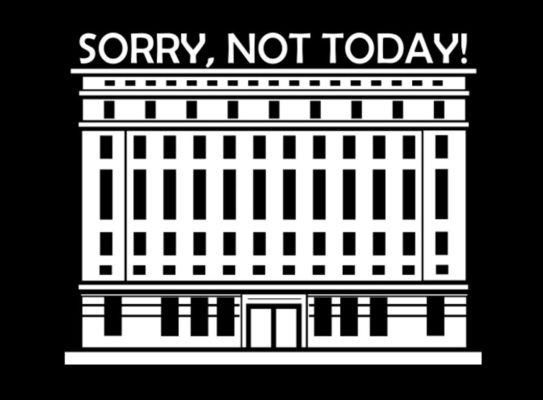
‘Any multiplicity whatever’.
Badiou
I’ve lost count of the warnings that predicted specific disasters, weakening experiences, what we call failures. They build up in my e-mails, in piles of paper, in envelopes from which emerge the tiring words we regret to inform you …
Is fatigue concealed in the meaning or in the ellipses that suggest indeterminacy? Existence is now equivalent to looking out of the corner of our eyes at post-its that shape an inhospitable landscape of mere appearances. The most celebratory would say that it is an affirmative form of self-blinding. Others, perhaps, that you’ve given in to self-cannibalism; that by becoming a producer-of-yourself you have ended up being obliterated through presence, through representation, or what we could call the terrorism of determination.
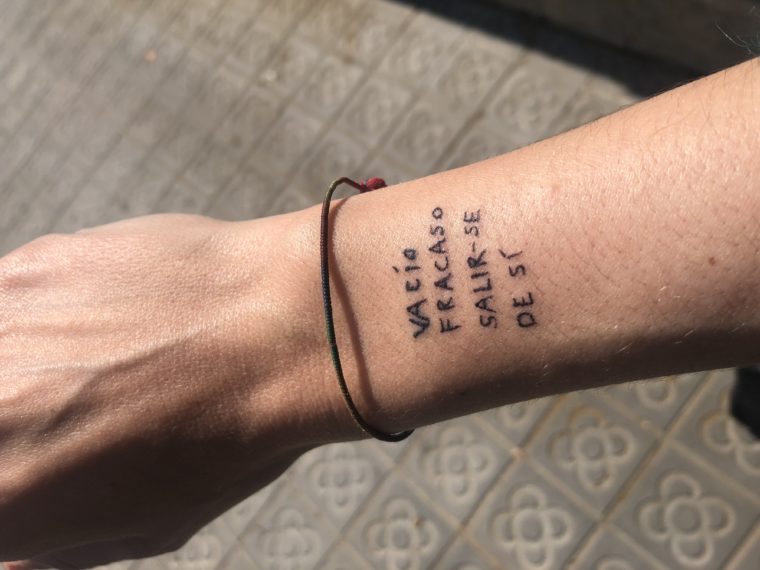
Tattoo on Laura Benítez’s arm
If we accept the idea that we shape our tools and then they shape us, we’ll have obviously fallen into our own trap of the event. We’re trapped in the configuration of representation, of recognising and being recognised, with no script. Perhaps it is precisely the absence of a script that facilitates the appearance of the transitive, the verb that in this case precludes: revile.
In this temporality of the subject-as-producer-of-himself the fact that the transitive should become an impossibility seems to be symptomatic, to say the least. But of course, this isn’t just any impossibility but the maelstrom of the event as the impossibility of the occurrence. Or, with less philo-technical flourishes, the production-of-oneself as the vilification of life.
The life we waste in the impossible rhythms of figuration, in living in transit instead of dwelling, turning cultural productions into airports, preserving the celebratory records of our events, sharing our successes in networks of non-existent affects, an almost endless display of ostentation of sensitive orders.
I sometimes wonder whether we have become the Fabras* of what we call culture, promising ourselves that we will turn the lie of the production-of-the-self as the development of being into a truth. Aware that we’re toying with the development of being as a producer of value in the framework of cognitive capitalism, presumably immaterial, terribly existential.
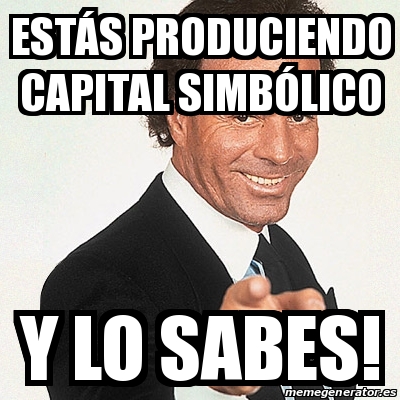
Meme done by the students of Critical and Cultural Studies at the Escola Massana
Our days come and go amidst possible collusions, articulating strategies that enable us to occupy spheres of recognition. Producing symbolic capital. Playing the event game, seeing and letting ourselves be seen. We, who like to be recognised as witches, who find it hard to admit that we are more postmodern than they would want us to be, who have pretended to be intermediary agents in the crisis of re-presentation. Who get up every day lying to our-selves. Who fashion our lives in the service of the economy of desire, trapped in the dictatorship of creativity, persistently showing our vulnerability trophies. Orders built on expectations for the future, under the promises of realisation.
Each and every one of us is aware of the downfall we face after becoming producers-of-ourselves, signs of the oneunder the guise of the multiple. Yet, how can we dis-engage from the production-of-the-self? Who can dis-engage? Who would dare todis-engageafter having based their existence on self-construction?
A short time ago I shared these questions with Anna Moreno Medran in the context of a project she is working on dedicated to fears. We were wondering how to dis-engage from (over)production to exhaustion. How todeliver-our-selves of the promises we made ourselves. How to pull-ourselves-up-by-our-own-bootstraps, embracing the fear of failure, of not succeeding, not appearing in spaces, not aspiring to symbolic production or to whatever we couldn’t previously belong.
And the conclusion we reach is this: in the face of the lack of an answer, let’s dance.
According to Badiou, dance is a metaphor for thought.[1] Dance is a sort of disobedience from established ontological order. It’s the possibility that breaks the horizon of expectations. But there are dances and dances, just as there are places and places; so for me, dance as a break has only one possible place which, from a gabber perspective, we could call our own temple of the event: Berghain.
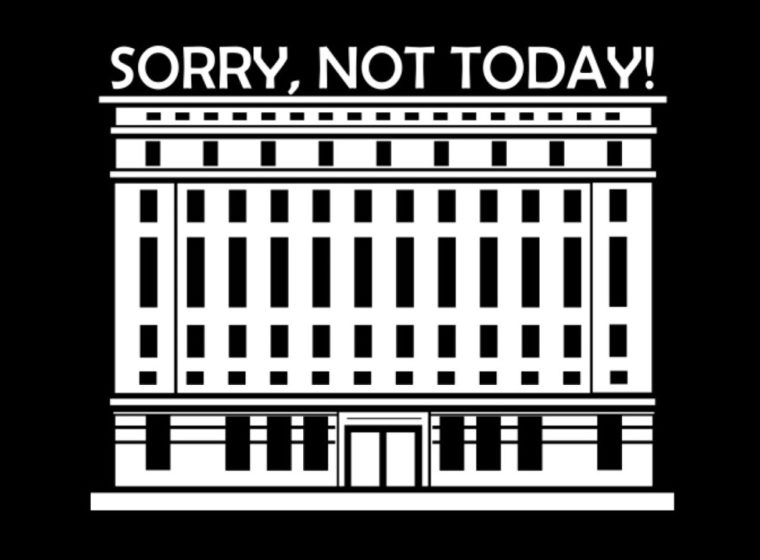
Berghain Panorama Bar – Sorry, not today! – Berlin
That’s where we find ourselves, emerging out of emptiness like spontaneous chaotic bodies, becoming a multiplicity of sorts made up of endless differences entangled in the break of space-time.
Singling ourselves out in the multiple, at a cliff’s edge, taking dance as a faculty of oblivion in a context of representational absence. A place where, without photos, there is no ostentation of graphic testimonies, fossilised experiences of our day and age. There is nothing to be built, nothing to be articulated; only a break that suggests the emptiness of the situation.
Berghain is the twist, the break in the performing intervention, the rejection of truth and the resistance to its creation. Berghain is the fracassare, the becoming in the between, finding-oneself in the middle of something (fra) and breaking-up (quassare). Berghain as a temporal break in the production-of-the-self. That’s where the embrace takes place, where Dionysus defeats Apollo and failure no longer has anything to do with success. Where each and every one of us become a multiplicity, not represented. Finding ourselves on the dance floor as if in a collective exorcism, where we burn all the ‘we regret to inform you’ that have peopled our lives to a hardcore rhythm.
I would say that there are at least two kinds of failure: the one that goes hand in hand with success and the one that allows the multiple celebration of in-between places.
But who can enter Berghain?
Sorry, not today!
* Reference to Andrea Fabra, a Spanish member of parliament for Castellón who was caught ridiculing the unemployed after an announcement made concerning cuts to their benefits by the right-wing Spanish government of Mariano Rajoy.
[1] Alain Badiou, Handbook of Inaesthetics, translated by Alberto Toscano, Stanford University Press, California, 2004.
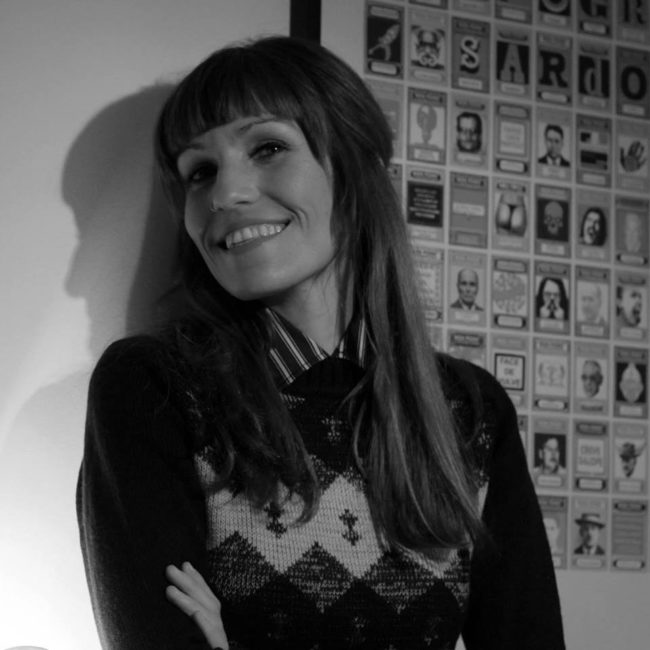
Laura Benítez Valero is a researcher and university lecturer. Her research connects philosophy, artistic practices, and technoscience. She is a professor in the Department of Philosophy at the Autonomous University of Barcelona. She has also taught at Elisava and co-directed the Master’s program in Design for Emerging Futures at the IAAC (Instituto de Arte Contemporáneo de Barcelona). She coordinated the Theory area in the Arts and Design degree program at the Escola Massana, where she no longer teaches for political reasons, but where she taught Critical and Cultural Studies. She has been a visiting researcher at the Ars Electronica Center and the Center for Studies and Documentation at the MACBA (Museum of Contemporary Art of Barcelona). She has also collaborated with international institutions such as the University of Art Linz (in the Interface Cultures Master’s program), the Sónar Festival (Barcelona/Hong Kong), the Royal Academy of Arts (London), and the University of Puerto Rico. Between 2019 and 2021, she directed Biofriction, a European project (Creative Europe) on bioart and biohacking practices, led by Hangar in collaboration with Bioart Society, Kersnikova and Cultivamos Cultura.
"A desk is a dangerous place from which to watch the world" (John Le Carré)